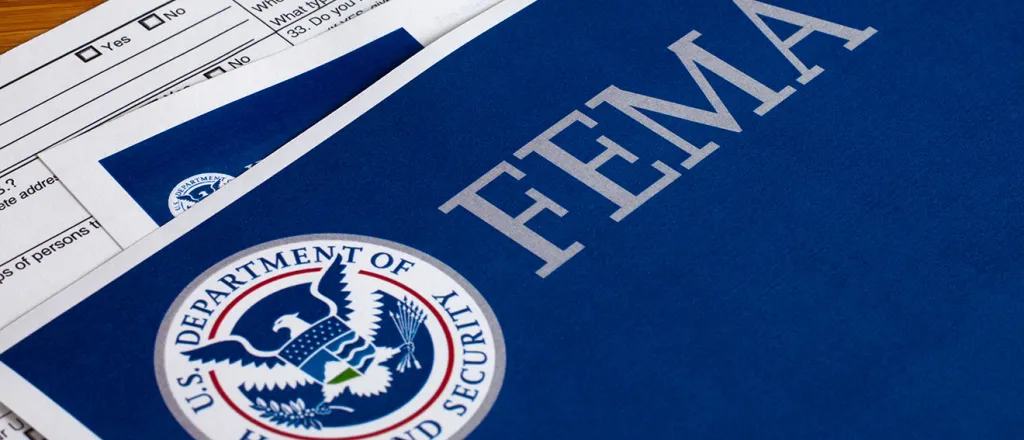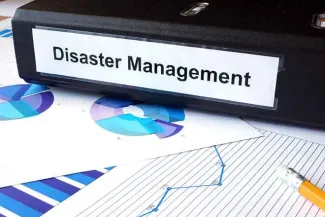
New Mexico’s U.S. senators to Noem: Reform FEMA. Don’t scrap it entirely.
New Mexico’s two U.S. senators are calling on Homeland Security Secretary Kristi Noem to fix rather than abolish the Federal Emergency Management Agency, as she and other prominent officials have called for recently.
Democratic U.S. Senators Martin Heinrich and Ben Ray Luján wrote Noem a letter Monday outlining problems FEMA could fix, particularly regarding its response to wildfires and their aftermath, but also defending the agency as necessary to help people recover from disasters.
“We want to emphasize that serious, targeted reform is the answer to these pressing problems – not dismantling FEMA altogether,” the senators wrote. “The federal government has an important role to play in assisting state and local governments in the wake of natural disasters.”

© iStock - designer491
Noem previously said she was devising ways to eliminate FEMA. She has backed off that language, though her department has cut billions of dollars in disaster resilience grants, including a $4 million allocation to New Mexico.
The letter notes that states and local governments don’t have adequate money to pay for increasingly expensive disasters. In New Mexico, for example, a FEMA formula calculates the state can withstand only about$4 million in disaster costs before it needs the federal government to step in.
When it comes to reforming the agency, the senators’ letter points repeatedly to the 2022 Hermits Peak-Calf Canyon Fire near Las Vegas, the biggest fire in state history. Since the fire, every rainstorm threatens to become a flash flood or debris flow that causes further damage. FEMA is not well-equipped to handle those kinds of scenarios, the senators wrote.
“Western states face a distinct and growing threat: namely, catastrophic wildfires followed by cascading disasters such as landslides, flooding, and water system failures that compound damage and slow recovery,” the senators wrote. “These cascading events—which can happen years after an initial fire—are devastating, and FEMA has repeatedly struggled to respond effectively.”
The post-fire flooding in Las Vegas has continued each year since 2022, particularly in the summer monsoon season, after the fire destroyed vegetation and degraded the soil. The flooding has prompted the city to postpone the construction of a new water treatment plant, and caused the cancellation of Fiestas last summer, which is the single biggest annual event in Las Vegas.

© iStock - ArtemSam
“As a result of these floods, the business community lost out on their largest income-generating event of the year,” the senators wrote.
FEMA needs to improve its handling of “cascading events,” allowing disaster grant recipients to rebuild infrastructure equipped to handle future disasters, not just to their pre-disaster capacity. At the moment, FEMA’s Public Assistance program will only fully reimburse local governments and other public entities for the cost of rebuilding infrastructure such as bridges and culverts to the same size and specifications as they were before the wildfire.
“While we understand the intent behind these rules—to restore essential infrastructure equitably—they do not adequately address the unique and escalating risks associated with post-wildfire environments,” they wrote.
FEMA should also increase its disaster assistance to individuals and families, the senators wrote. During the 2022 wildfire, the maximum people could receive from FEMA, even if they lost their primary residence and all it contained, was about $37,000.
The senators asked the agency to increase the payments, especially in light of challenges people in fire-prone areas face securing insurance. FEMA typically does not pay disaster victims if they have private insurance, but home insurance is becoming prohibitively expensive or is completely unavailable in areas like Mora and Ruidoso after wildfires there last summer.
“FEMA must adapt its policies and funding levels and work with other federal agencies to meet the needs of those who fall into this widening gap and ensure that recovery is possible for those who, through no fault of their own, can’t obtain insurance,” Heinrich and Luján wrote.

















